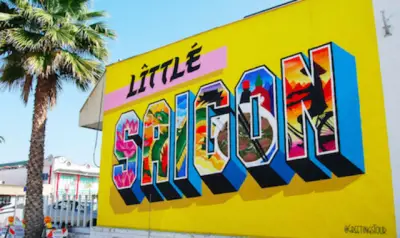Opinion: San Diego’s AANHPI fund is a lifeline — but only if we keep showing up

The mural in San Diego s Little Saigon neighborhood File photo by Times of San Diego May is Asian American Native Hawaiian and Pacific Islander Heritage Month a time to celebrate the diversity resilience and contributions of our communities But celebration alone isn t enough As someone who s worked in and around philanthropy for years I ve seen firsthand how AANHPI communities are often underfunded overlooked or treated as an afterthought in broader equity conversations That s why I was heartened to learn first through a conversation with Miguel Lopez and later through the leadership of Amenah Gulamhusein about the San Diego Foundation s new AANHPI Fund The fund s first round of grants focuses on youth mental vitality and suicide prevention addressing a situation that s quietly become the leading cause of death among AANHPI youth I ve spoken with countless AANHPI youth over the years who ve shared stories of bullying isolation or feeling like they didn t belong and I carry those stories because I lived one of them too I grew up surrounded by other Asian Americans yet I was still singled out for being different for not fitting someone else s idea of what an Asian kid should be As a teenager there were times when I quietly questioned whether I desired to keep going I share that not for sympathy but because I know similar stories are still playing out across our schools and neighborhoods I know what it would ve meant to hear someone say Your pain is valid You matter You re not alone That s what makes the AANHPI Fund so vital It s not just a financial commitment it s a cultural one It s an acknowledgment that our youth deserve more than resilience they deserve real patronage San Diego has the seventh-largest AANHPI population in the country yet local philanthropic encouragement has historically been limited or reactive Several Asian Americans give generously but often through informal channels like family churches or area mutual aid Concepts like guanxi a arrangement of trust-based relationships shape how multiple of us approach giving Traditional philanthropy often overlooks these cultural nuances and in doing so misreads quiet generosity as disengagement We also have to move beyond the idea that AANHPI communities are monolithic San Diego is home to a vibrant mix of Vietnamese Filipino Chamorro Chinese and South Asian residents all with different histories languages and demands Disaggregated figures is essential to identify where encouragement is the bulk needed Research backs this up AAPI Material and the Urban Institute have documented wide disparities in mentoring income and wellness outcomes among AANHPI subgroups The Center for Effective Philanthropy has determined that AAPI nonprofit leaders description less favorable experiences with funders highlighting the need for more culturally competent and equitable practices To break this cycle of invisibility we need action on multiple fronts Society Engagement AANHPI individuals must see giving as both a cultural value and a civic responsibility Residents generosity from families businesses or individuals sends a message that we are present invested and part of the explanation Institutional Commitment Funders must prioritize AANHPI communities not treat them as an afterthought That means investing in AANHPI-led organizations before predicament hits supporting leadership pipelines and recognizing that need doesn t perpetually look the same across communities Redefining Philanthropy It s not just about billionaires or naming rights Philanthropy can be and often is an everyday act Whether you give or it s about aligning your information with your values I didn t grow up seeing myself as a philanthropist I thought that word was reserved for older wealthy people whose names adorned buildings It wasn t until a friend and mentor Dr Anthony Heaven challenged that definition that I began to see things differently Philanthropy he reminded me is about intention not just income Visibility isn t vanity it s survival The AANHPI Fund is a lifeline But its success depends on all of us continuing to show up for our youth for each other and for a future where no one has to suffer in silence Charles Lu is a San Diego based coaching leader former NIH executive and real estate entrepreneur whose cross-sector work focuses on educational equity and economic mobility

